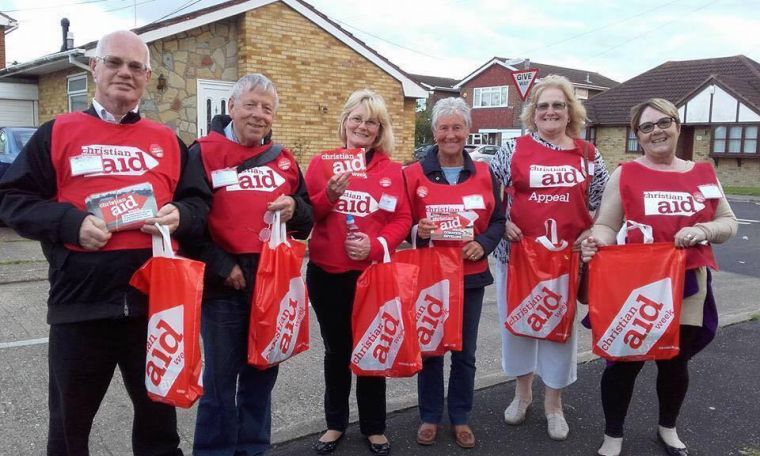Christian Aid Week follows churches in trialling cashless collections

With plastic increasingly replacing notes and coins, this year's Christian Aid Week will see the trial of contactless payment units to collect donations.
Christian Aid Week, which begins this Sunday, is the charity's most important fundraiser each year.
An estimated 50,000 people are set to participate this year in raising funds for the aid agency, which provides support to people in poverty overseas.
In addition to the traditional buckets and tins, Christian Aid will this year be trialling 500 contactless payment units for collections being made in churches, while individual volunteers will be piloting mobile phone giving.
The move reflects the changing way in which people are paying for goods and services, with the advent of mobile and contactless forms of payment meaning fewer people have cash on them.
Christian Aid is partnering with Parish Buying, a scheme set up by the Church of England and Church in Wales to help churches collect donations digitally.
Churches taking part in Christian Aid Week have been invited to order contactless payment units free of charge from Parish Buying.
Christian Aid Week lead, Lianne Howard-Dace, said the new payment options would help the charity to reach a new generation of digital donors looking to support its work in a way that is convenient, secure and cost-effective.
"Christian Aid Week is by far our biggest and best community fundraiser, and has been running for over six decades," she said.
"Not surprisingly, much of the money our dedicated volunteers collect during the week comes in the form of cash dropped into envelopes, buckets and collection tins.
"However, like many charities we've seen growing numbers of people who simply don't carry cold, hard cash anymore: when they spend money, they prefer to reach for their cards and smartphones, rather than coins and notes.
"That's why we are trialling new, innovative ways to raise funds to ensure we can continue standing together with people living in poverty for many more decades to come."











